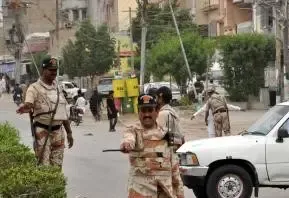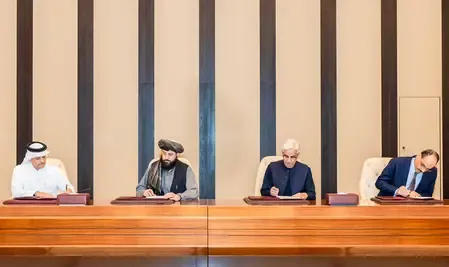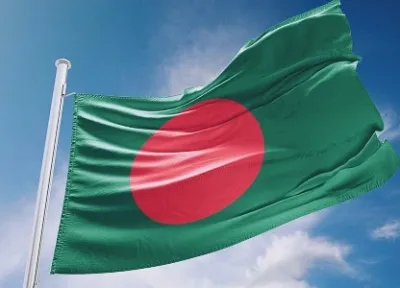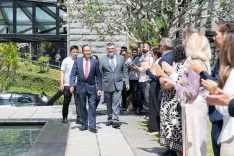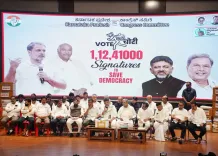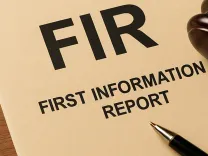Is 'Kinetic Action' by India Against Pakistan Imminent?
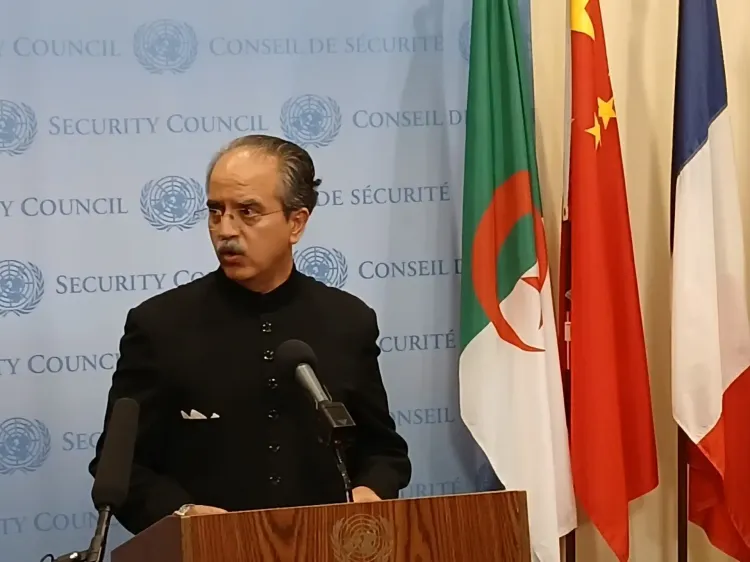
Synopsis
Key Takeaways
- Pakistan's UN envoy warns of imminent kinetic action by India.
- Call for intensified international intervention to address tensions.
- Indus waters issue highlighted as a potential trigger for conflict.
- Diplomatic efforts are crucial to prevent escalation.
- Recent terrorist attack in Pahalgam has heightened regional tensions.
United Nations, May 3 (NationPress) Pakistan's Permanent Representative to the United Nations, Asim Iftikhar Ahmad, has emphasized the urgent need for enhanced international involvement amid escalating tensions between his nation and India, warning of an imminent threat of kinetic action from New Delhi.
He expressed disappointment over the lack of effective measures to prompt India to de-escalate, reflecting on Islamabad's struggles to garner support for its position.
During a news briefing on Friday, Ahmad reiterated Pakistan's stance that any withholding of Indus waters would be deemed an 'Act of War', asserting that Pakistan would respond by exercising its inherent and legitimate right to self-defense.
He indicated that, due to the ongoing escalation, Pakistan might seek to convene a meeting of the UN Security Council.
Ahmad highlighted the importance of efforts by "common friends of both India and Pakistan" to reduce tensions.
"However, there is a growing sense that the desired impact, particularly on the Indian side, to encourage de-escalation has not yet been achieved," he stated.
"This is why we are advocating for increased efforts," he added.
Rising tensions can be attributed to last month’s terrorist attack in Pahalgam, for which The Resistance Front, linked to the Pakistan-based Lashkar-e-Toiba, has claimed responsibility.
He warned that a conflict could have far-reaching and disastrous consequences, underscoring the necessity of preventive measures, diplomacy, and dialogue to ease the situation.
Ahmad mentioned his discussions with UN Secretary-General Antonio Guterres, who has been invited to visit the region, which would involve both India and Pakistan.
Guterres' spokesperson, Stephane Dujarric, remarked that effective mediation requires acceptance from all parties involved.
India has consistently opposed third-party involvement in its disputes with Pakistan, citing the 1972 Simla Agreement, which stipulates that these issues should be resolved bilaterally.
While Guterres has engaged with Pakistan's Prime Minister Shehbaz Sharif, his interactions with India have only reached the level of External Affairs Minister S. Jaishankar.
Ahmad reported a series of meetings with various officials, including the President of the UN Security Council, Evangelos Sekeris, and representatives from the Organisation of Islamic Cooperation.
He revealed that there is credible intelligence pointing to an imminent threat of kinetic action from India against Pakistan, although he did not specify the sources of this information.
"Pakistan does not seek escalation. This has been clearly stated by our political leadership at all levels. Nevertheless, we are fully prepared to defend our sovereignty and territorial integrity," he affirmed.
Ahmad asserted that Pakistan categorically refutes any attempts to link it to the April 22 terrorist incident in Pahalgam, expressing concern over the lives lost in that attack.
However, when questioned about Pakistan's ties to terrorism and the recent acknowledgment by Pakistani Defence Minister Khawaja Asif regarding his country's support to terrorists, he refrained from providing a direct answer and instead directed allegations towards India.
He was pressed about the Mumbai 26/11 attackers originating from Pakistan and the presence of internationally designated terrorists such as Hafiz Saeed, the mastermind of that attack, and even Osama bin Laden.
"This is the kind of discussion I prefer to avoid," he stated.


